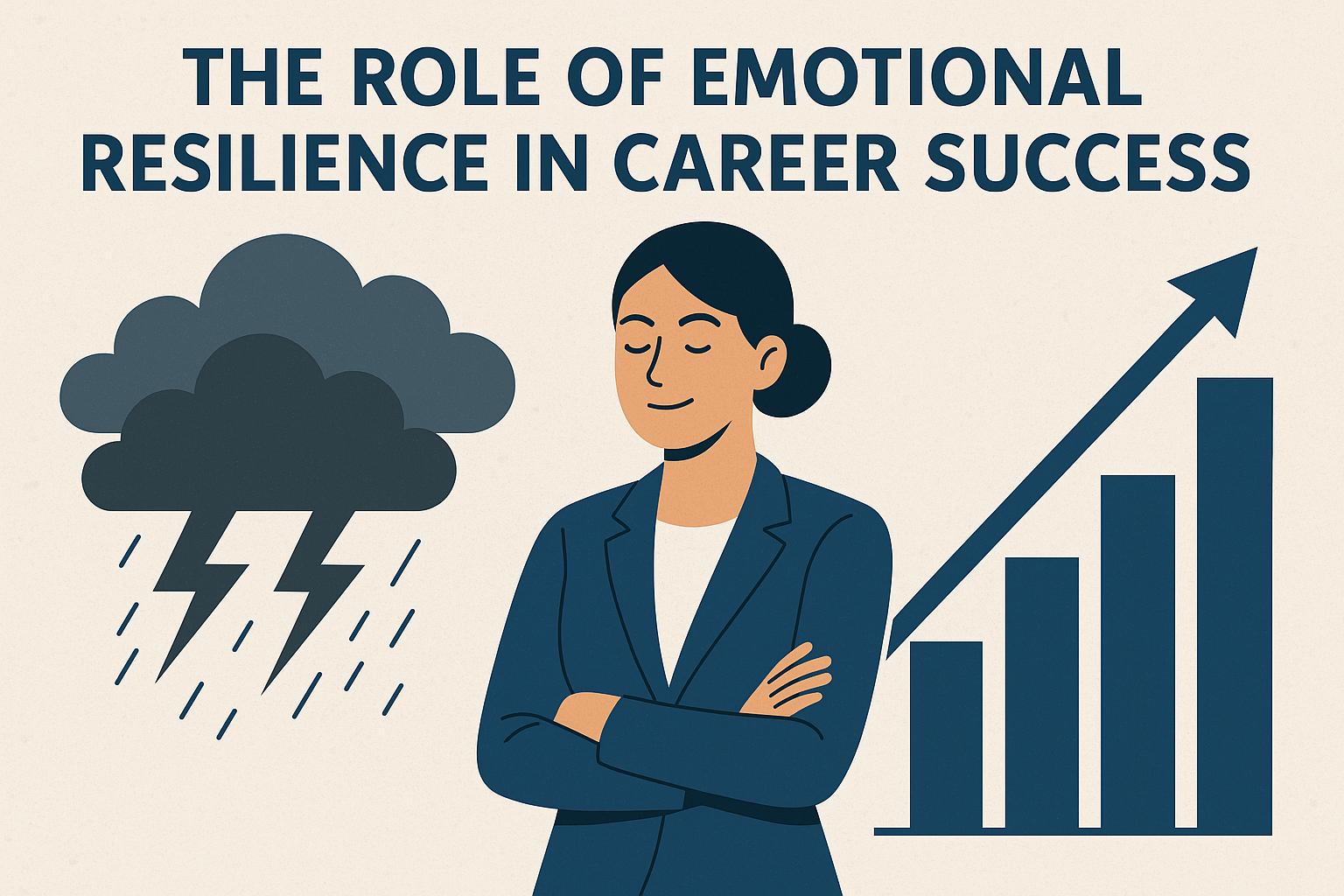The Impact of Emotional Resilience on Professional Growth
Emotional resilience plays a crucial role in achieving career success. This psychological trait helps individuals effectively manage stress and adapt to challenges in the workplace. Understanding and developing emotional resilience can significantly enhance professional growth and job satisfaction.
Understanding Emotional Resilience
Emotional resilience refers to the capacity to recover quickly from difficulties, setbacks, and adversity. It is a dynamic and adaptable trait that allows professionals to maintain focus and motivation despite facing challenges. Individuals with high emotional resilience tend to exhibit steady performance under pressure and are less likely to succumb to work-related stress.
Attributes of Emotional Resilience
Emotional resilience comprises various attributes that enable individuals to navigate personal and professional challenges effectively. Key among these attributes is the ability to maintain a positive outlook even in adverse situations. Resilient individuals are often characterized by a certain steadiness, enabling them to manage emotions and remain task-oriented amidst disruption.
Another important characteristic of emotional resilience is flexibility. This involves adapting one’s cognitive and emotional responses to better fit the realities of challenging circumstances. It’s not just about enduring or surviving adversity, but about actively engaging with challenges and finding constructive ways forward.
Factors Contributing to Emotional Resilience
Several internal and external factors contribute to an individual’s level of emotional resilience. Internal factors include personal traits such as self-control, optimism, and confidence. These personal attributes can significantly alter how stress affects an individual, with greater self-control and optimism often correlating with higher levels of resilience.
External factors encompass social support networks, workplace environment, and access to professional development opportunities. The presence of strong social support networks can mitigate stress, while a positive workplace environment encourages resilience by validating employee efforts and promoting a sense of belonging. Access to continuous learning opportunities also plays a crucial role, enabling individuals to acquire new skills and adapt more readily to change.
The Benefits of Emotional Resilience in the Workplace
Emotional resilience offers numerous benefits that are directly linked to career success. Key advantages include:
1. Enhanced Problem-Solving Abilities: Resilient individuals can approach complex problems calmly and analytically, leading to effective solutions. This enhanced capacity for problem-solving facilitates greater creativity and innovation, as individuals can think clearly under pressure and are open to diverse perspectives.
2. Improved Stress Management: Those with strong emotional resilience are less likely to be overwhelmed by stress and can maintain productivity during demanding periods. This is particularly vital in high-pressure roles, where the ability to function under stress can dictate success outcomes.
3. Strong Interpersonal Relationships: Resilient employees often exhibit strong communication skills and empathy, which aid in building positive workplace relationships. They are typically more adept at navigating interpersonal conflicts and fostering team collaboration.
4. Higher Job Satisfaction and Retention: Resilient workers typically experience greater satisfaction in their roles and exhibit higher levels of loyalty to their employers, reducing turnover rates. This satisfaction stems from feeling equipped to handle job-related stresses and from being part of a supportive work environment.
Long-term Professional Growth
Over time, individuals who are emotionally resilient tend to experience sustained professional growth. Their ability to cope with and learn from setbacks allows them to view challenges as opportunities for personal and career development. This growth-oriented approach supports continuous improvement and the pursuit of career advancement.
Developing Emotional Resilience
While some individuals may naturally possess higher levels of emotional resilience, it is a skill that can be cultivated over time through intentional effort. Techniques to enhance emotional resilience include mindfulness practices, developing a growth mindset, accessing mentoring opportunities, and seeking feedback.
Mindfulness and Reflective Practices
Mindfulness involves being present in the moment and can help reduce stress and improve emotional regulation. Regular mindfulness practices, such as meditation and deep-breathing exercises, can foster greater emotional awareness and resilience.
Reflective practices, such as journaling or thoughtful self-assessment, provide insights into personal strengths and areas for improvement. They also help individuals process experiences and emotions, contributing to greater emotional intelligence and adaptability.
Workplace Strategies to Foster Emotional Resilience
Employers can play a significant role in nurturing emotional resilience among their workforce. Implementing supportive practices such as establishing a culture of open communication, promoting work-life balance, and offering employee assistance programs can contribute to creating a resilient workforce.
By creating an environment that values and supports emotional well-being, employers can enhance employee engagement and productivity. Encouraging employees to take time for self-care, providing opportunities for professional growth, and fostering a culture of recognition and appreciation can strengthen resilience.
Emphasizing Professional Development
Organizations that prioritize ongoing professional development help employees build resilience by equipping them with skills to adapt to evolving work demands. Offering training programs, workshops, and access to educational resources enables employees to stay competitive and resilient in the face of industry changes.
Conclusion
Emotional resilience is a valuable asset in navigating the complexities of today’s work environment. By understanding its role and incorporating strategies to enhance resilience, both individuals and organizations can achieve greater levels of success.
Building a resilient workforce is not just about handling stress but also about fostering an environment of support and continuous growth. Adopting a holistic approach that attends to the mental and emotional well-being of employees can lead to sustained organizational success and a thriving work culture.
For more information on developing emotional resilience in the workplace, consider exploring resources provided by professional organizations and mental health experts. A sustained commitment to enhancing resilience can transform workplace dynamics, making it a cornerstone for future career achievements.
This article was last updated on: October 17, 2025

